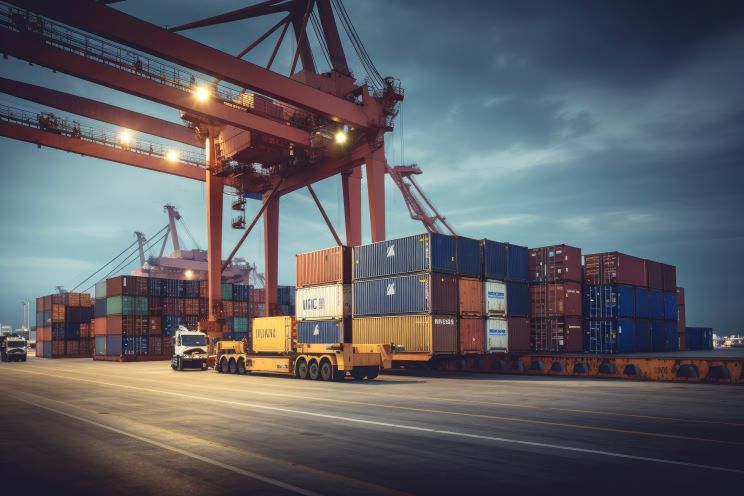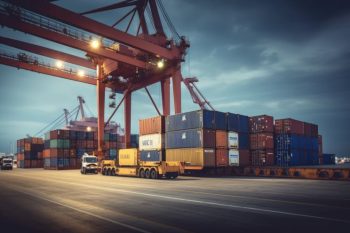SUPPLY CHAIN: How digitalization can drive sustainable supply chains in the least developed countries
1 year agoWednesday, 18 September 2024
GEÓ VOICE: SUPPLY CHAIN: How digitalization can drive sustainable supply chains in the least developed countries
By WEF: World Economic Forum
Syndicated by GEÓ PRWire Channel Team – Gibraltar
GEÓPoliticalMatters.com/PRWire
First for Geopolitical Intel
Digitalization can drive sustainable supply chains in least developed countries (LDCs) by improving efficiency and reducing waste through technologies like AI, Blockchain, and IoT. Successful initiatives in countries such as Bhutan, Bangladesh, Cambodia, Ethiopia, Nepal, Rwanda, Timor-Leste, and Vanuatu demonstrate the potential of digitalization to enhance transparency and integrate economic, social, and environmental dimensions into the supply chain.
By including the offline population and implementing paperless trade, digitalized supply chains can address sustainability concerns and benefit small businesses and farmers. Real-life examples in Vanuatu, Timor-Leste, and Cambodia show the positive impact of digitalization in reducing paperwork, physical trips, and CO2 emissions. Business process digitalization in Bhutan and training programs in Bangladesh also contribute to sustainability and productivity.

Digitalization has the potential to transform the way businesses achieve a triple bottom line – economic, social and environmental – to address the rising concerns of shareholders. One way to achieve this objective is to enhance transparency and meaningful integration of these dimensions into the entire supply chain, for which digitalization can be a powerful tool.
A study on the Impact of Digitalization of Sustainable Supply Chains shows the prospects of various digitally powered technologies, such as artificial intelligence (AI), additive manufacturing, blockchain, big data and the Internet of Things (IoT), all of which can contribute to supply chain sustainability.
While there is little doubt that the digitalization of supply chains helps reduce inventory, waste and the environmental footprint, saves time and cut costs, digitalization does not help almost two-thirds of the population of the least developed countries (LDCs) that are still offline. Therefore, the inclusion of the excluded (offline population) is equally, if not more important, if the past development paradigm of “winner takes all” is to be avoided.
Digitalized supply chains have the potential to address sustainability concerns from the perspective of the LDCs. Real-life examples demonstrate how small steps taken in LDCs in the digitalization of trade facilitation and business processes and efforts aimed at enhancing supply chain transparency are benefiting small businesses and farmers.

About GEO´ PRWire Channel
Our PR Wire Channel Management Team provide direct, immediate, highly cost-effective access to our entire Geopolitical contacts network including our proprietary Userbase of 232k* individually named, profiled & GDPR compliant CSuite industry influencers and policy makers, across the Banking & Finance, Insurance, Manufacturing, Technology, Aviation and Maritime industries as well as NGOs and Government Departments Worldwide. (*Up 41% year on year) Post your First Release Free!
About WEF (World Economic Forum)
The World Economic Forum is the International Organization for Public-Private Cooperation. It provides a global, impartial and not-for-profit platform for meaningful connection between stakeholders to establish trust, and build initiatives for cooperation and progress.










